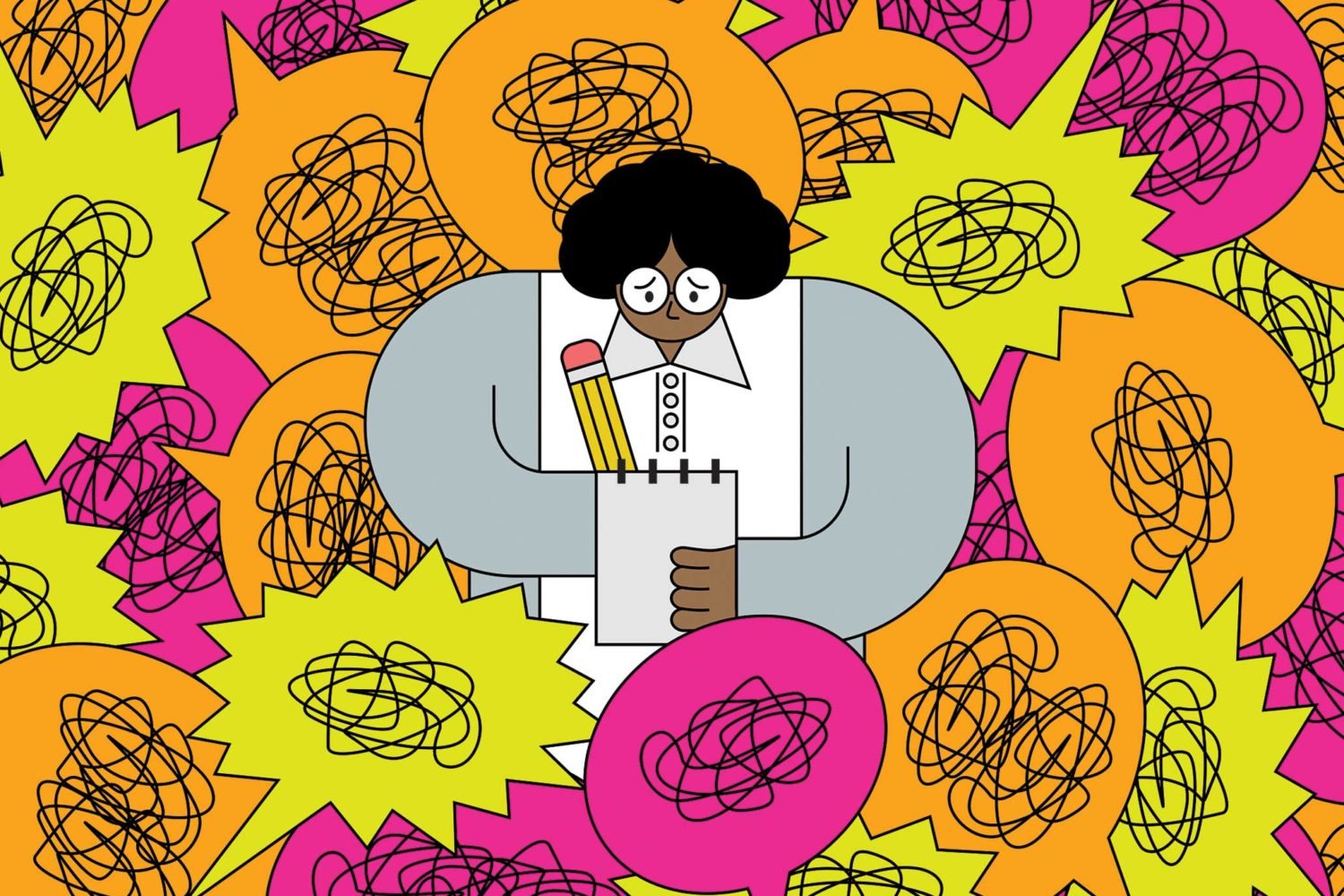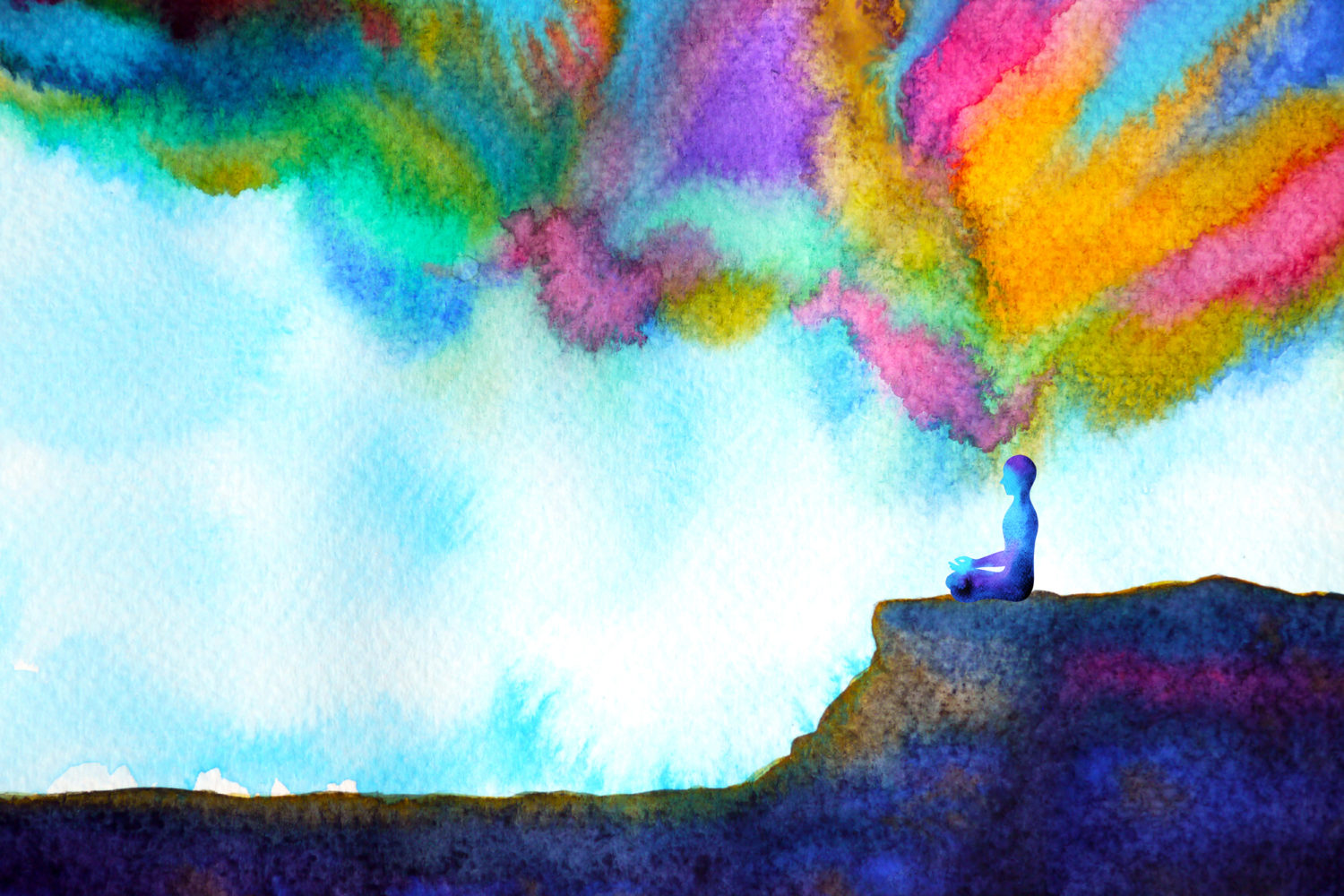No question is supposed to be off-limits in a therapist’s office—and yet, sometimes you’re sitting on that leather lounger, worrying that maybe you’ve cried too much in recent sessions or stressing that twice-a-week appointments mean there is something really, really wrong with you. And you just can’t make yourself ask your therapist about it. But psychiatrists, psychologists, and other mental health professionals are highly trained to tackle whatever thoughts or emotions you have hopping around inside of you. That means therapy is a safe space to talk about—or ask about—anything and everything, including whether or not your constipation is caused by your SSRI and why exactly your therapist keeps asking questions about your mom and dad.
But for those new to therapy, pouring your heart out to a stranger and discussing your deepest-held fears can be intimidating. Maybe you don’t yet feel comfortable asking those “embarrassing” questions. So we went ahead and asked them for you. We chatted with Maury Joseph, PsyD, a psychology associate in Washington, D.C., who answered a few of our burning questions.
Am I crazy?
If you are crazy then you’ve certainly come to the right place! However, it’s up to you to decide whether that’s a label you want to put on yourself. I wonder though, if in me asking that, you’re asking me to put you down or shame you? Is that a tendency you have, to get people to put you down or judge you? Do you also judge yourself? Seems sad to me that you came here to do a positive thing for yourself, and that shaming part of your mind lights up right away. Should we look into that?
I’m ashamed that I’m going to therapy. How should I tell my family and friends?
I’m not going to tell you whether you should or shouldn’t be ashamed, but I will say this: It seems like you came here to try to do something positive for yourself, but at the same time, you’ve got this internal shaming process going on. Do you think it would be worth looking into that together? Is that part of what’s hurting you in life? Has that shaming voice held you back from other positive things you wanted to do for yourself?
You’re under no obligation to tell your family. That is a very case-by-case decision that every person wrestles with when they’re coming into therapy because it’s a matter of intimacy. How intimate and honest do you want to be, and is it safe to be intimate and honest with family? Would it potentially be risky or self-destructive to share that with the people around you? Would it help you get more support, or would it lead to trauma and problems in those relationships? It’s something you’ll want to evaluate thoughtfully and discuss with your therapist.
I’m worried that my thoughts are weird and shocking and that they’ll upset you. Will you get freaked out?
Oftentimes, people are ashamed of their thoughts, and they worry that other people are going to shame those thoughts, too. If someone tells me something that happened to them that’s truly shocking and terrible, I will certainly have a reaction. I may say, ‘Oh, that’s horrible. I’m so sorry you had to go through that.’ I try to treat that with empathy, let people know you’re not alone. Anyone, given the right circumstances, could have the problems you’re having.
Why do you ask me to keep coming back for more sessions? Am I THAT crazy?
It’s not a matter of being crazy, it’s a matter of the kind of work you’re looking to do. Treatment length depends on the specific nature of your goals and also on the intensity of the difficulties you have and how long you’ve had them. Everyone is different. If you think the therapy is helpful and you’re getting somewhere, continue going to therapy. At the end of the day, it’s completely up to you whether to come back. I can make the recommendation, but it’s your choice.
There are so many people out there who are worse off than me. Am I making a big deal out of nothing?
I just wonder if comparing yourself to others is part of what’s keeping you stuck in life? Do you think you could be trivializing the very real human pain you’re feeling? Suffering is suffering, and here we have an opportunity to help you with yours if you want that.
I’m embarrassed to cry in front of you. Will you think I’m weak?
For 99.9 percent of people who come into my office, crying is an important and helpful aspect of their recovery. Emotions are our body’s reaction to the truth of our lives, and if you’ve had pain in your life there’s going to be tears inside you that will want to come out. People are able to learn a lot about themselves when they can face some human sadness about the way they’ve been suffering. Facing those human emotions is a very brave thing, in my estimation.
What happens if I see you at the store? Will you say hello to me? Can I say hello to you?
I’m not going to talk with you about sensitive confidential therapy related matters in a supermarket checkout line. My ethics code says that I am not authorized in any way to approach you, so I may even avoid eye contact and I won’t say hi. That’s to avoid putting you in the awkward situation where someone else comes walking up, and you’d have to say, ‘This is Maury, he’s my therapist’ or make up some lie. I don’t want to put you in that situation, but if you want to talk to me I’ll certainly talk back to you.



















